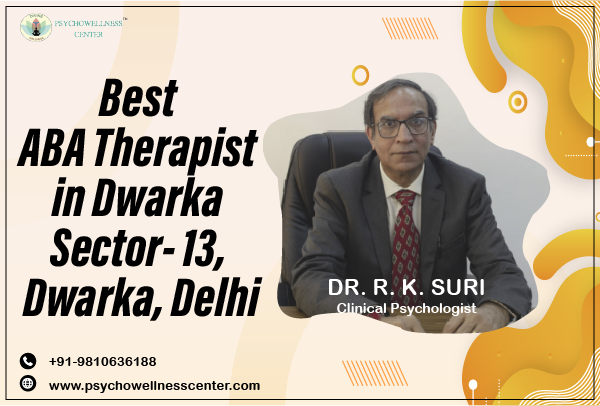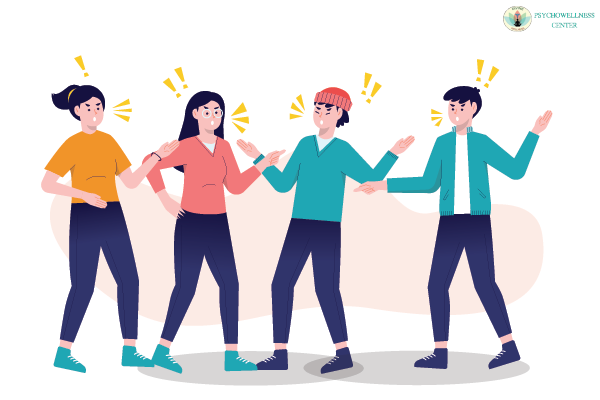Strategies to Manage Impulsive and Risky behavior

Impulsive and risky behaviour can manifest in many ways, from making hasty decisions without considering the consequences to engaging in activities that could lead to physical or emotional harm. Understanding the underlying causes and implementing effective strategies to manage such behaviour is crucial for overall well-being. This blog will explore several practical approaches to help individuals manage impulsivity and reduce risky behaviour.
Understanding Impulsivity and Risky Behaviour
Impulsivity refers to acting on a whim, without thinking things through, while risky behaviour involves taking actions that expose individuals to harm or danger. These behaviours can stem from various factors, including:
Biological Factors: Genetics and neurochemical imbalances can contribute to impulsivity.
Psychological Factors: Conditions such as ADHD, Bipolar disorder, and borderline Personality disorder often involve impulsive behaviour.
Environmental Factors: Stress, Trauma, and negative influences can increase the likelihood of risky behaviour.
Recognizing the triggers and patterns associated with impulsivity is the first step in managing it.
Strategies to Manage Impulsive and Risky Behaviour
- Mindfulness and Self-AwarenessMindfulness practices, such as meditation and deep-breathing exercises, can help individuals become more aware of their thoughts and actions. By fostering a non-judgmental awareness of the present moment, mindfulness can reduce impulsive reactions and promote thoughtful decision-making.
Tips for Practising Mindfulness:
Start Small: Begin with small sessions of 5-10 minutes and progressively increase the time as you gain confidence in the practice.
Focus on Breathing: Pay attention to your breath, noting each inhale and exhale. This simple focus can help ground you in the present moment.
Use Guided Tools: Utilise mindfulness apps or attend mindfulness workshops to help guide your practice.
How it Helps: Mindfulness increases self-awareness, allowing individuals to recognize impulsive urges before acting on them. By pausing and reflecting, one can choose more constructive responses.
- Developing Coping SkillsEnhancing coping skills can provide alternative ways to deal with Stress and emotional discomfort, reducing the need to resort to impulsive actions. Techniques include:
Emotion Regulation: Learn to manage emotions through techniques like journaling, talking to a friend, or engaging in a creative activity.
Problem-Solving Skills: Break down problems into manageable steps and explore various solutions before acting. This methodical approach helps reduce anxiety and impulsive responses.
Distraction Techniques: Use activities like exercise, reading, or hobbies to divert attention from impulsive urges.
How to Set Effective Goals:
Use the SMART Criteria: Try to make goals which are Specific, Measurable, Achievable, Relevant, and Time-bound.
Write Down Goals: Documenting your goals makes them more concrete and easier to follow.
Review and Adjust: Regularly review your goals and adjust them as necessary to stay on track.
How it Helps: Clear goals and boundaries create structure and purpose, reducing the urge to engage in impulsive or risky behaviours.
- Building a Support NetworkHaving a strong support network of friends, family, or support groups can provide emotional backing and practical advice. Sharing experiences and receiving feedback from trusted individuals can help manage impulsivity and encourage positive behaviour changes.
How to Build a Support Network:
Identify Trusted Individuals: Surround yourself with people who understand and support your goals.
Join Support Groups: Consider joining groups for individuals facing similar challenges.
How it Helps: Support networks offer accountability and encouragement, helping individuals stay on track with their behaviour management plans.
- Healthy Lifestyle ChoicesA balanced lifestyle can significantly impact impulsivity. Regular exercise, a nutritious diet, and adequate sleep contribute to better emotional regulation and cognitive functioning.
Healthy Habits to Incorporate:
Engage in Physical Activity: Aim for at least 30 minutes of exercise daily. Exercise releases endorphins that can improve mood and reduce impulsivity.
Maintain a Balanced Diet: Eat plenty of fruits, vegetables, and whole grains. Proper nutrition supports brain function and emotional health.
Get Adequate Sleep: Sleep deprivation can increase impulsivity and reduce cognitive control. Try to sleep for 7-9 hours for healthy functioning of your mind.
How it Helps: Healthy lifestyle choices enhance overall well-being, reducing the likelihood of impulsive behaviours.
- Professional HelpSometimes, managing impulsive and risky behaviour requires professional intervention. Therapists, counsellors, and psychiatrists can offer tailored treatment plans, including therapy and medication if necessary.
When to Seek Professional Help:
Interference with Daily Life: If impulsive behaviour significantly interferes with daily functioning.
Risk of Harm: When there is a risk of harm to oneself or others.
Lack of Improvement: If self-help strategies do not yield sufficient improvement.
How it Helps: Professional help provides personalised strategies and support, addressing the unique needs of individuals struggling with impulsivity.
Conclusion:
Managing impulsive and risky behaviour can be challenging, but it is achievable with the right strategies and support. For those who need additional help, seeking individual counselling can be a convenient and effective option. Connecting with Top psychologists in your area can provide personalised support, helping you develop healthier coping mechanisms and achieve a more balanced life. If you or someone you know is struggling with impulsive and risky behaviour, consider exploring the options available and take the first step towards lasting positive change.
Psychowellness Center ensures that accessible mental health care is available throughout Delhi NCR. With services in NOIDA, Faridabad, Janakpuri, Dwarka, and Vasant Vihar, our expert therapists provide effective, individualized support.
Contribution:- Dr. R K Suri, a top clinical psychologist, and Ms. Samiksha Sharma, a respected counseling psychologist and life coach, are available on TalktoAngel for personalized mental health guidance.




SHARE